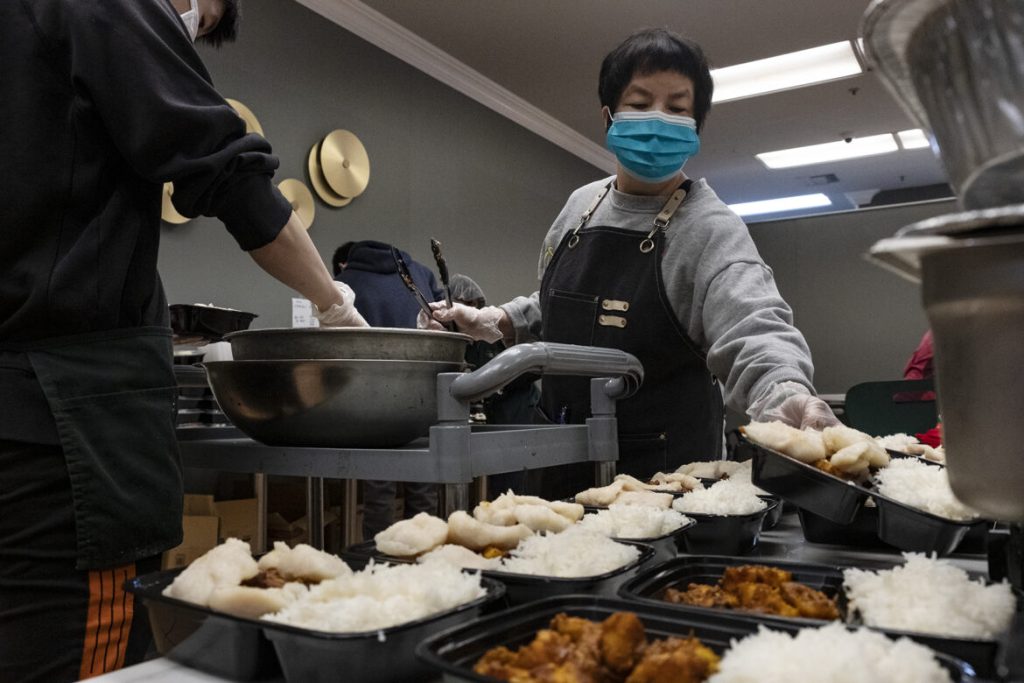Mehreen Chawla
Last year, the Covid-19 lockdown and resultant governmental policies led to indoor dining restrictions. Inevitably, the gap created by the absence of restaurants was filled with takeaways and home deliveries, as people tried to satisfy their desire to eat out. Various home chefs flourished where restaurants lagged, with some even having a sales boom in 2020.
A home chef is a small, home-based business, often run by women who find it convenient to prepare and dispatch freshly cooked food from their homes, for pick-up or delivery to customers’ homes. These businesses have gained popularity over the last few years via word of mouth, through social media and, now, through delivery services.
Nadia Moqeet Khan, who runs My Spicy Kitchen by Nadia, and Lailumah Shah, owner of Deli-Cious by Lailumah, both acknowledge that their entry into the home chef business started off as a hobby, but that with support from family and friends, they eventually turned their hobbies into a profession.
Nadia began her business with a mere 3,000 rupees. “I accumulated my capital as my business grew, and thankfully, it paid off,” she says. Lailumah’s story is similar. “I started off by making stuffed bread in my kitchen,” she says. “It was convenient, and something new, plus I didn’t have much to lose if it didn’t work out. I’m glad it did.”
“We have over a hundred chefs on our platform,” says Shahryar Khan, the vice president marketing at Homechef.pk, which operates its platform out of Karachi. “We have over twenty cuisines being cooked — from Japanese to Hyderabadi — by authentic chefs who have a passion for cooking.”
The biggest adversity last year was, of course, Covid-19, which threatened to wipe out even well-established restaurants, let alone home-based businesses. “There was a delivery ban for the first month of the lockdown, which led to our worst month in history,” says Shahryar. “We soon recovered with the allowance for home delivery, but the rains that followed proved an additional detriment to our comeback.
“Even more difficult was the disappearance of ‘lunch time’ — offices were shut, people were working from homes, indulging in late breakfasts, early dinners, no proper lunches. This led to a significant drop in our office meal plans businesses.”
Many businesses had to lower their cost to continue working. “I was out of business for months as we had no orders,” says Nadia. “Some businesses, even established ones, had to let go of their employees at the time.” In contrast to those left without orders, Lailumah’s business had itself stopped taking orders. “I’ve been selling food for eight years but, this time, it didn’t feel safe to risk my own health and my family’s by taking orders,” she says. “So I paused everything until May.”
With time though, the situation improved. Interestingly, some well-established restaurants may have shut down because of Covid-19, but eventually the lockdown became a blessing in disguise for home chefs. People still couldn’t go out to eat but they could order in instead.
Some home chef businesses even profited. “We capitalised by pushing more dinner meals and snacking options,” Shahryar says. “Various chefs selling regular home-cooked food like daal and mixed sabzi [vegetables] actually prospered. Our reading is that, typically, people would be looking at more eclectic options to order in, but with the ‘new normal’, everything has changed.”
People now often opt less for domestic help, as they cook more with more family members continually at home and, therefore, are looking to order more for regular meals. “That can explain why various home chefs have prospered,” says Shahryar as he points to a chart on the screen. “In December 2020, we did more than twice the business we were doing at the start of the year. We expect the demand to continue significantly, as more people indulge in increased meals and snacks, and continue to outsource their kitchen.”
Apparently businesses that sell snacks and more of everyday food items have flourished, compared to chefs selling desserts and less-traditional cuisines.
Some home chefs, such as Lailumah, prefer to cook alone. “I don’t hire help at all,” she says. “In the rare instance that I do, it’s only to wash the dishes or clean the kitchen. Staff hasn’t been a problem for me.”
With the on-and-off flight restrictions, and ongoing lockdowns in other countries, many ingredients for non-Pakistani food are often unavailable for weeks, even months. Those that are available have had a price spike because of the increased cost. “As I have a home-based business, there’s very limited space for stock, so I constantly have to tick things off the menu and back because of the unavailability of ingredients,” says Nadia. “Thankfully, the situation seems to be getting better, so I hope the uncertainty will be replaced with clarity.”
Despite the anxiety and the continuing global pandemic, home chefs do look at the present year with cautious hope. “We had many challenges over the past year, but we overcame them,” says Nadia. She looks tired, but determined, even enthusiastic about what lies ahead. “It can only get better from here.”
Courtesy: Dawn










